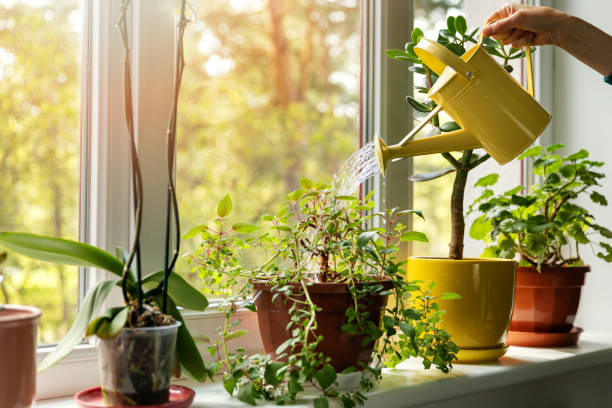
FAQ About Plant Care
Plant Care
2 years ago | gizem
What are the best natural remedies for plant pests?
Several natural remedies can help control plant pests. Here are some effective options:
- Neem oil: Neem oil is derived from the neem tree and acts as an insecticide and repellent. It can be used to control a wide range of pests, including aphids, scale insects, mealybugs, and whiteflies. Dilute neem oil according to the instructions and apply it to affected plants.
- Insecticidal soap: Insecticidal soap is made from potassium fatty acids and is effective against soft-bodied insects like aphids, mites, and whiteflies. Dilute the soap according to the instructions and spray it on the affected plants, targeting the pests directly.
- Garlic and chili pepper spray: Create a homemade spray by blending garlic cloves and chili peppers with water. Strain the mixture and spray it on the plants. The strong odor and compounds in garlic and chili act as natural repellents for many pests.
- Horticultural oils: Horticultural oils, such as mineral oil or vegetable oil, can be effective against aphids, mites, and scale insects. Dilute the oil according to the instructions and spray it on the affected plants. The oil suffocates the pests by coating their bodies.
- Beneficial insects: Encourage beneficial insects like ladybugs, lacewings, and parasitic wasps in your garden. These insects feed on pests and help control their populations naturally. Plant nectar-rich flowers to attract them or purchase beneficial insects from garden supply stores.
- Sticky traps: Yellow sticky traps or sticky tape can be placed near affected plants to catch flying pests like whiteflies and fungus gnats. The pests get trapped on the sticky surface, preventing them from infesting the plants further.
- Companion planting: Interplant pest-repellent plants like marigolds, basil, or garlic with susceptible plants. Certain plants emit natural compounds that repel pests or attract beneficial insects, reducing pest problems.
- Physical barriers: Use physical barriers like row covers or netting to protect plants from pests like insects or birds. This method is particularly effective for preventing damage from larger pests or pests during specific seasons.
- Handpicking: For smaller infestations or larger pests, manually remove them from plants. Wear gloves and pick off pests like caterpillars, slugs, or snails and dispose of them away from the garden.
- Regular maintenance: Maintaining good plant health through proper watering, adequate sunlight, and balanced nutrition helps plants resist pests and recover faster from infestations.
